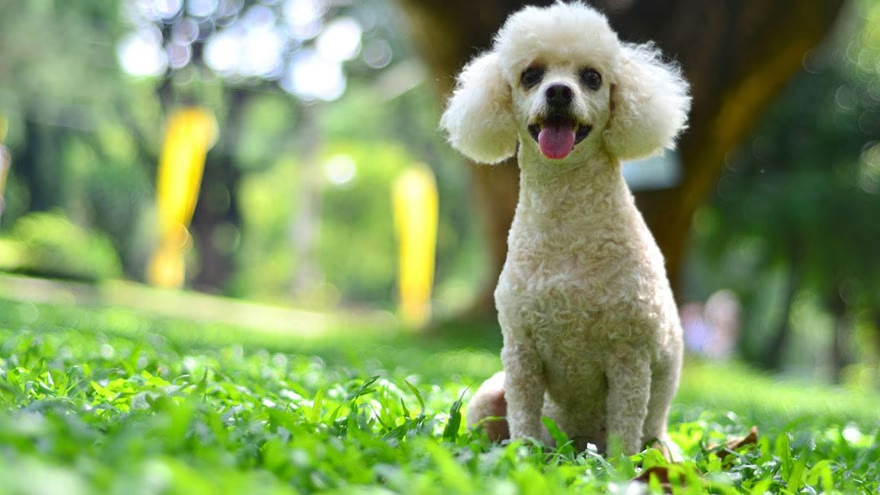Even though careful breeding can eliminate many of the inherited health problems of purebred dogs, the Poodle does have some definite inherited tendencies toward certain conditions. This list is an effort to give the owner of a new Poodle some initial direction.
Health Problems İn The Poodle
Poodles, like many dogs, can be prone to hip dysplasia, a condition in which the hip is malformed and diseased. In many cases, the ball and socket do not fit together properly. The disease may be caused by development of arthritis in the joint, with damaged cartilage being one of the major problems.Healthy cartilage should be thick and elastic to support the skeleton. Therefore, a change in the hip cartilage can cause problems with walking, rising, and sitting. Keep in mind that some anti-inflammatory medicines to help reduce pain and inflammation are available. Then, cases that are more serious may require surgery.
All three sizes of Poodle can develop progressive retinal atrophy, a condition of the eye that may begin with limited night vision and limited vision in dim light. Sometimes this disease develops so far that the dog may become completely blind.
This disease is inherited, which causes tissue at the back of the eye that receives and transmits visual signals to the brain to deteriorate. One noticeable sign of the problem is the “shine” in a dogs eye as the pupils open more and more to try to get extra light. Sometimes the lens becomes cloudy as a cataract develops.

Both of these medical conditions are widely recognized in purebred dogs and top quality breeders will be careful not to use dogs in their breeding if there is a history of hip dysplasia or progressive retinal atrophy in the older dog’s bloodlines.
These two situations alone are enough factor to visit at least three breeders when shopping for a new puppy, and for being prepared with questions about both parents of the litter, you are considering.
Another condition that Poodle owners may want to learn about and watch for is sebaceous adenitis. In addition, this hereditary skin disease occurs when glands become inflamed and the dog gradually loses hair.
The Poodle is one of three breeds in which this is seen most often. It can be difficult to pin down a cause for loss of hair, but owners may want to watch for excessive dandruff, scaling, lesions, or some secondary skin infections. Sometimes a dog can have this problem and there will be no outward signs.
Your veterinary may be able to examine skin tissue through a microscope to determine if sebaceous adenitis is the problem.
In addition to these hereditary medical conditions, owners of young Poodles may want to consider the diet they give their purebred pet. Many dogs are allergic to the grains in cheaper brands of commercial dog foods.
The excessive amounts of corn, wheat, and soy may be the cause of breathing problems or skin problems in dogs. Some owners and breeders have moved to fresh foods, including meats and vegetables, for their dogs. If you feed your Poodle a commercial food, you may want to stay with the higher quality mix.
Consulting with your veterinarian is a good place to start. You may also be able to continue the diet that your breeder has chosen for his young dogs.
Read More About Poodle
- Poodle Breed Information
- Poodle : 10 Most Common Questions
- Poodle Training Guide
- Owning a Poodle : Breeder Recommendations
Save for later
Found this helpful?
Pin this article to your Pinterest board and come back to it whenever you need a reminder.
Save to Pinterest


